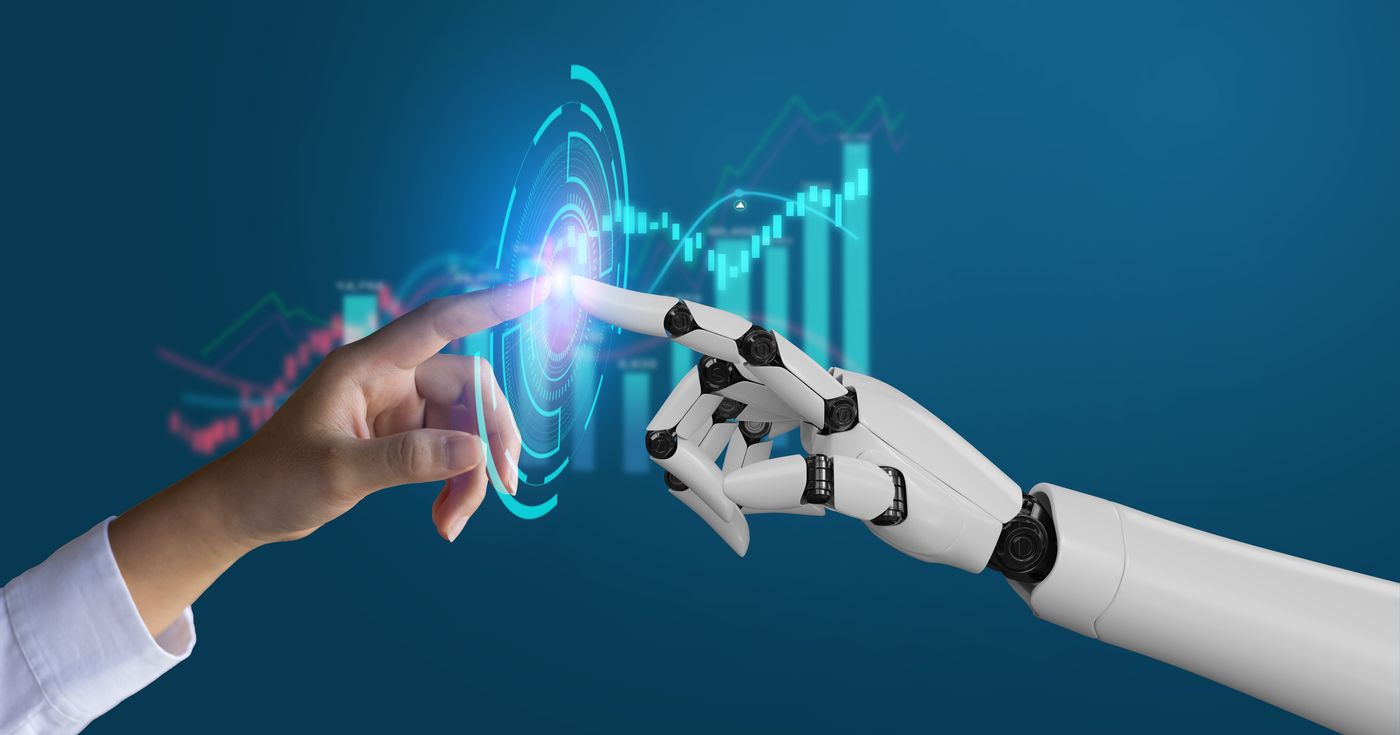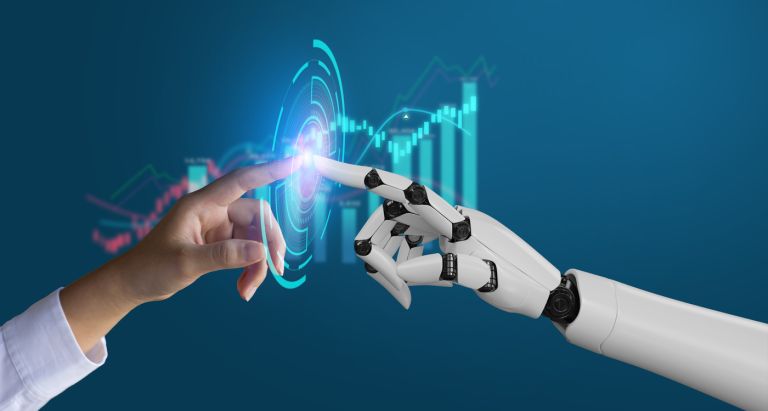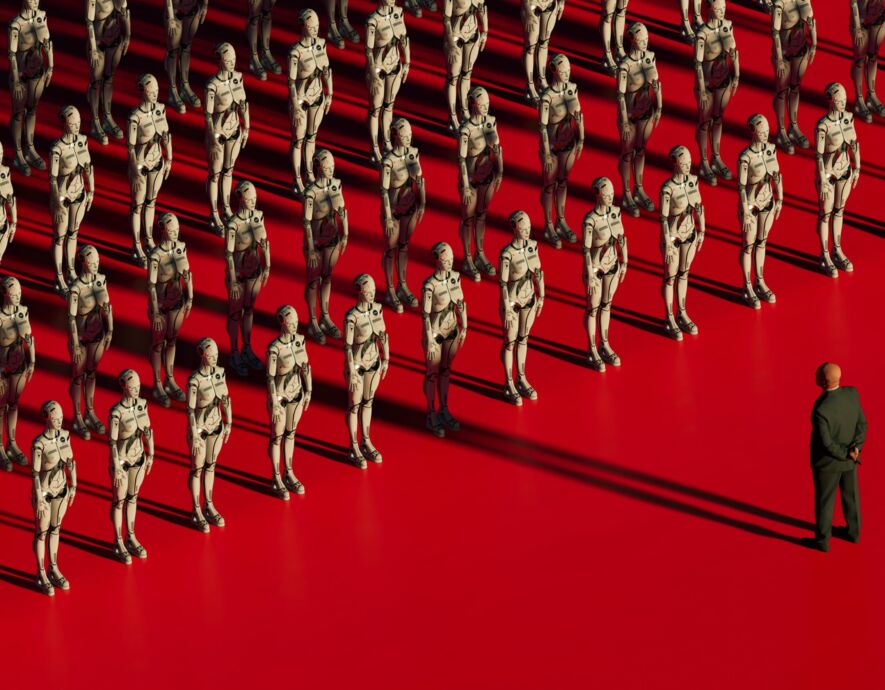
- Home
- Digital transformation
- “Mars Express”: when biological intelligence and computing products clash
“Mars Express”: when biological intelligence and computing products clash


This science fiction film by Jérémie Périn, released in November 2023, is a new variant on the topic of the search for the nature of AI objects. In this version, humanity oscillates between the objectivization of the emergence of general AI and the (cynical) mercantile reality.
One thing that makes Mars Express so interesting is how it takes what seems like high technology today to a new level of integration. The technologies and the systems that support them have reached such a level of sophistication that they could be described as seamless. In the film, technology has been made invisible to users on Mars, in the human colonies that have spread throughout the solar system, and on Earth.
Of course, since the film is called Mars Express, we find out little about what is happening on our planet. The plot takes place in 2200, so we can assume that, given the time between our own present day and the film’s setting, humanity has figured out how to tackle climate change. Did they leverage technology, or did they adopt virtuous sobriety? We never know for sure, although the film’s visuals suggest it wasn’t the latter. The only thing of which we can be certain is that Earth is suffering from mass unemployment that leads to anti-robot protests.
On Mars, meanwhile, humans are living in domes that exhibit the blues and whites of an Earth sky. Instead of terraforming the entire planet, people have adopted seamless technology that immerses Martian residents – a wealthy minority of humanity – in an idealized facsimile of an Earth environment.
In space, industrialization has reached such as level that you can go seamlessly from Earth to the Martian surface. Every effort goes into ensuring that passengers see as little as possible of the transport logistics chain. Watch the film to see the details of the SSTO (Single Stage To Orbit) launchers that dock with other vessels designed for interplanetary travel.
The idea is wonderful, but we must admit that, on top of the technological challenges, it requires a level of industrialization of space that will long remain well beyond what we could imagine today.
The last example of seamless technological integration, and that which is at the heart of Mars Express, is artificial intelligence. AI seems to be incorporated into most everyday objects. It takes an infinite number of forms and functions that range from smart toasters to anthropomorphic robots that act as digital copies of people who have passed on but were « backed up ». The AIs behind these machines feed on the memories, experiences, personality – the psychology? – of the individual before they died.
« Augmented » AIs
In Mars Express‘s world, artificial intelligences are far more varied and sophisticated than our current narrow algorithms whose capabilities are limited to specific domains: driving vehicles, augmenting gestures, generating text or images, or analyzing databases or signals. But that does not mean that we can’t recognize that each of these examples is a technological feat in its own right.
With its SF-like achievements, the future of Mars Express plays on the blurring between organic and artificial people that could one day exist: the heroine, Aline Ruby, carries out an investigation with her android colleague, Carlos Rivera. He is fitted with the stored personality of a friend who died five years earlier. In Mars Express, this type of (morbid) partnership is common.
As the plot progresses, we meet another protagonist who, despite the prohibition on making digital copies of living individuals, makes a clone of herself. By forcing her clone to work, she earns some extra money.
It is also prohibited in Mars Express‘s setting to allow an AI to breach the laws around robotics. These rules are not clearly spelled out, but by observing the behavior of the AIs in the film, we can safely draw a parallel with Isaac Asimov’s three laws of robotics: a robot may not harm a human being or, through inaction, leave that human being exposed to danger; a robot must obey orders given by human beings, unless such orders contradict the first law; a robot must protect its existence insofar as this protection does not contradict the first or second law.
By contrasting pleasure and constraint, Mars Express plays with the fluctuating separations between humans and robots. But above all, its world is a liberal one. Freedom-loving AIs are quickly called to order, whether they are restaurant servers or sex toys: they are all just objects, consumer products made by industrial processes. They must all submit to updates of their operating systems, to the dismay of human activists campaigning for the respect of what they consider to be people, albeit artificial ones. They would like to see laws that protect AIs just like any natural person or legal entity.
Beyond its plot – a detective story set in an SF film noir world – the movie highlights a variety of issues around possibly self-conscious AIs. It invites us to reflect on artificial intelligence’s self-awareness, its free will and the possibility that it could host software that comes with hidden instructions.
To define humanity’s stance toward its creations, we could also look to Hephaistos, the Greek god of the forge that created the first robot, Talos, whose mission was to protect Crete, as well as Hermes, the god of trade and commerce. This leads us to a new question: « When commercial opportunities arise, driven by disruptive innovation and breakthroughs, what will remain of AI objects?«
Business is the priority
One of these breakthroughs is in fact what triggers the crisis behind the film’s plot: the commercialization of products made from synthetic biology called OI, for organoid intelligence. In the present, OI exists, but only in laboratories.
Once again, Mars Express shows its cynicism: when faced with commercial interests and under pressure from market laws, companies, and indeed humanity, give little weight to ethical questions about AI. They only consider the quality of services rendered by their tools, whether they are IT, organic, or otherwise. Any obsolete tool must be taken out of circulation.
Watch Mars Express to discover the strategy used to get rid of AI. The film also reminds us that on future Mars, just like today, only business profitability guarantees that the companies that produce our everyday tools can remain going concerns. This drives them to always be developing the next generation of its products.
Once again, we shouldn’t let this spoil our fun: humanity has the right to look at its technical capabilities in wonder. But while we wait for « bio-computers » fueled by organoid intelligence, we should not let ourselves become too enamored by the power of the generative algorithms we have created. Let’s not give them « powers » that they do not have. Let’s believe in humanity first.
the newsletter
the newsletter



